Handwriting practice Normal Math Worksheets for Ages 4-7
6 filtered results
-
From - To
Discover engaging handwriting practice worksheets designed specifically for children aged 4-7! Our Normal Math Worksheets not only reinforce essential math concepts but also help improve your child's handwriting skills through fun and interactive activities. Each worksheet captivates young learners by incorporating colorful illustrations and age-appropriate exercises that make learning enjoyable. Perfect for home schooling or supplementary practice, these worksheets promote fine motor skills and encourage a love for learning. With a variety of exercises focused on numbers and problem-solving, your child will develop confidence and proficiency in both handwriting and math. Start the journey to better handwriting today!
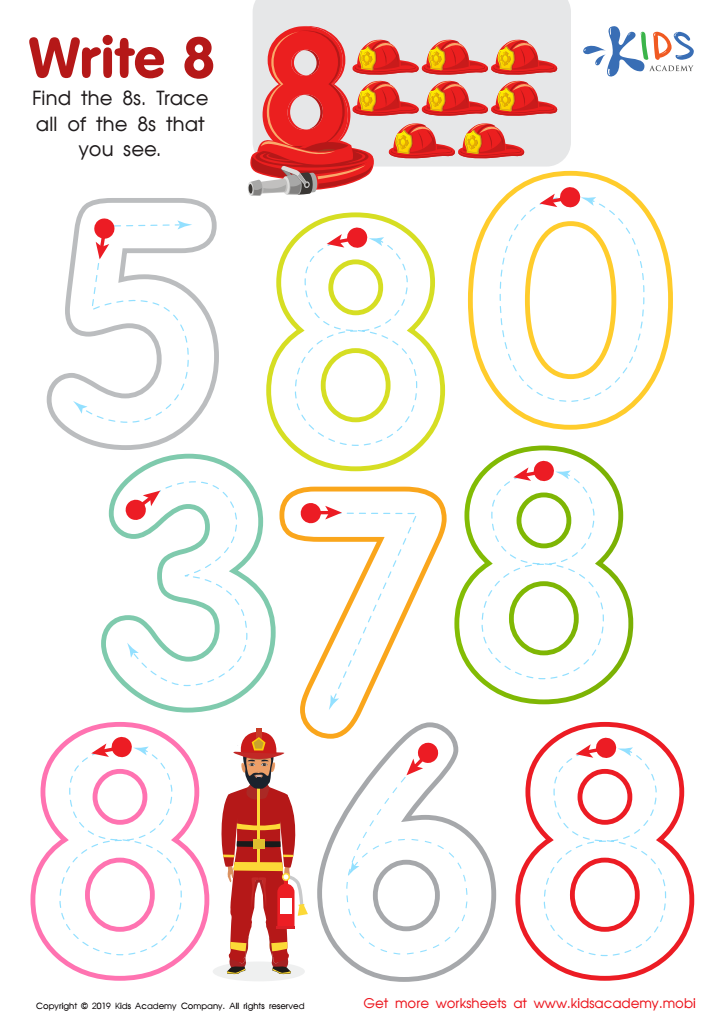

Write 8 Worksheet
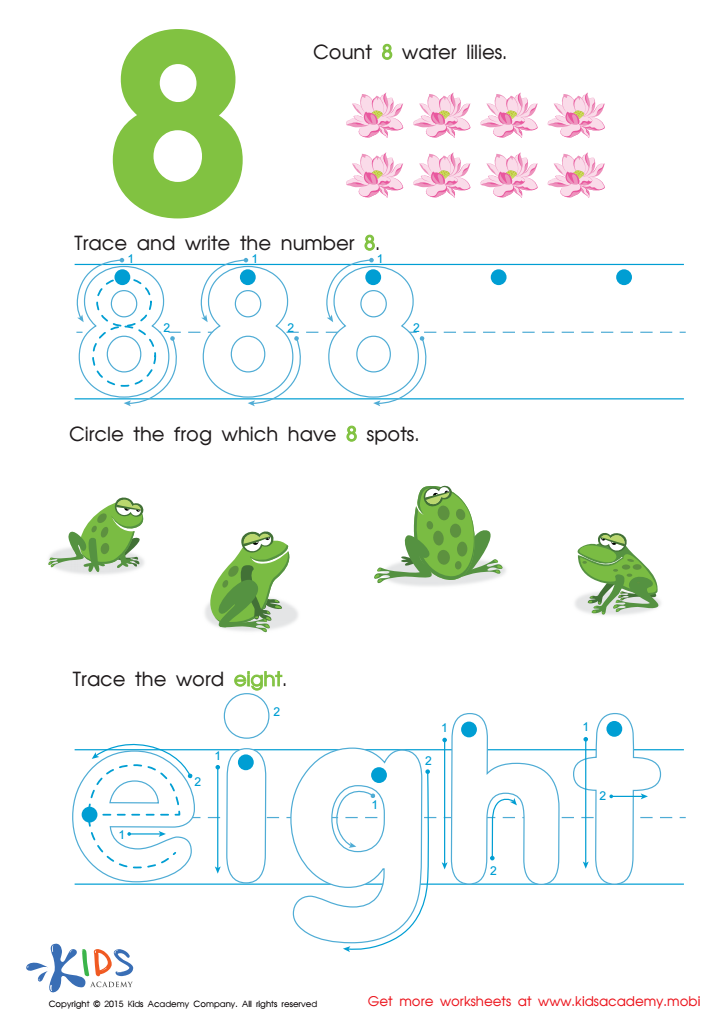

Learn Number 8 Easily Worksheet
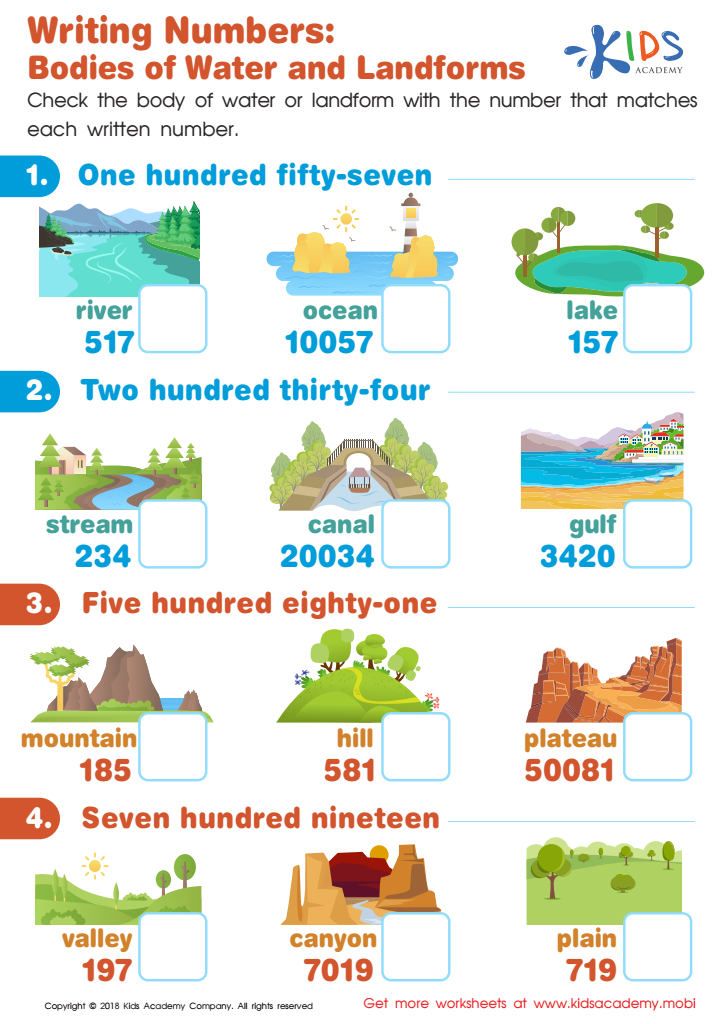

Bodies of Water and Landforms Writing Numbers Worksheet
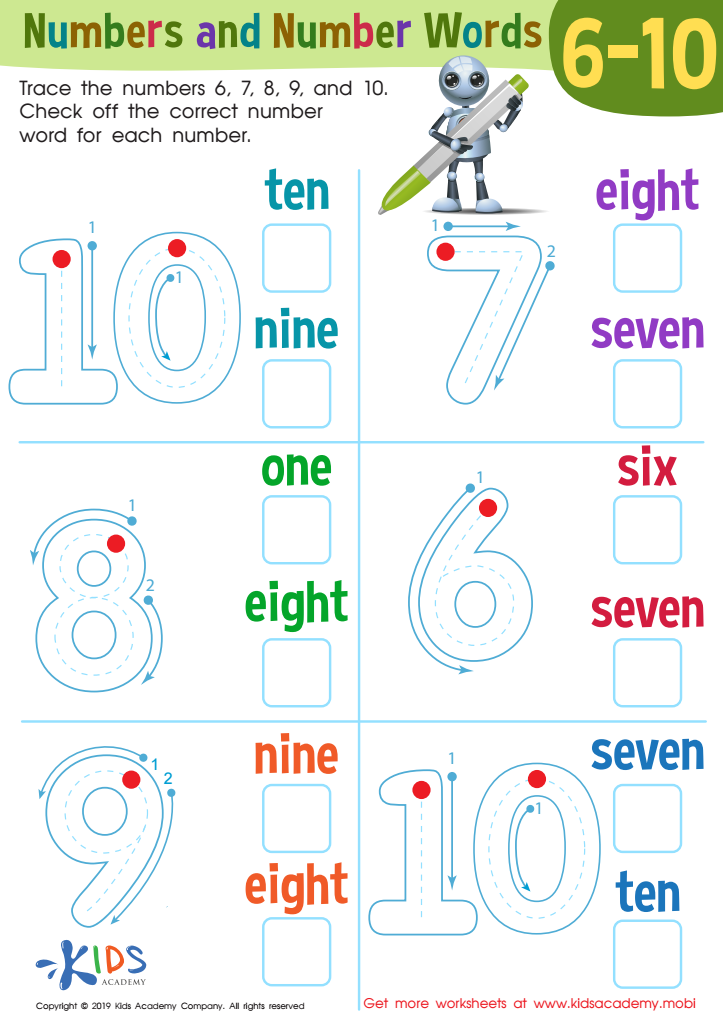

Numbers and Number Words 6–1 Worksheet
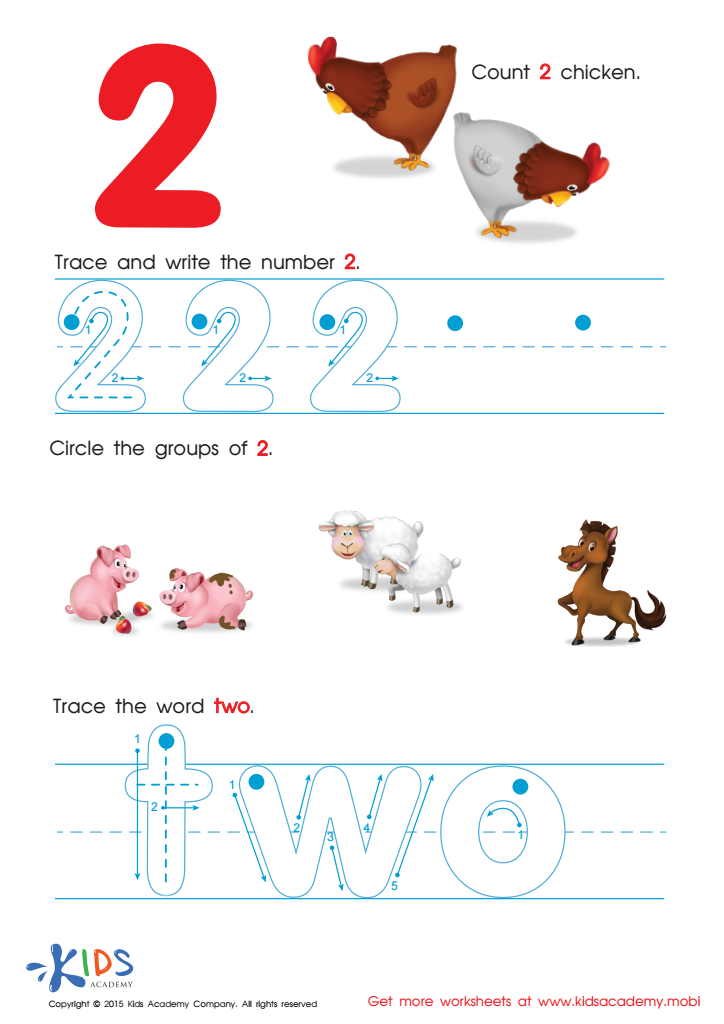

Learn to Write the Number 2 Worksheet
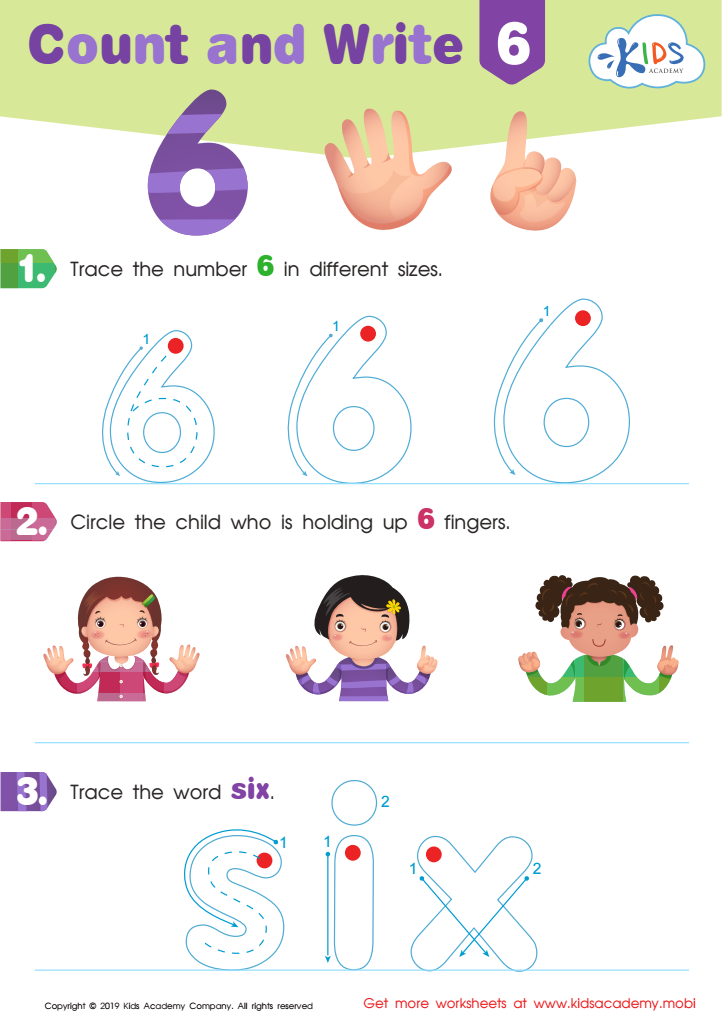

Count and Write 6 Worksheet
Handwriting practice is crucial for children aged 4 to 7 as it significantly impacts their overall academic development and fine motor skills. At this age, kids are building foundational skills that will support their learning throughout their lives. By engaging in handwriting practice, children develop the ability to form letters and numbers clearly, which is essential for effective communication and math skills.
Fine motor skill development is another key benefit of handwriting practice. As children manipulate pencils and practice strokes, they enhance their hand-eye coordination and refine their motor control, leading to improved performance in various physical tasks.
In terms of math, understanding number formation and spacing directly influences a child’s confidence and accuracy when working with numerical concepts. Effective handwriting helps children better interpret and complete math equations, understand word problems, and communicate their thought processes.
Furthermore, handwriting fosters cognitive development. It boosts memory retention and encourages concentration, as children must focus on forming letters and numbers correctly. For teachers and parents, promoting handwriting practice as part of a holistic learning approach can set children on the path to academic success and self-expression, ultimately affecting their love for learning positively.
 Assign to My Students
Assign to My Students







.jpg)








